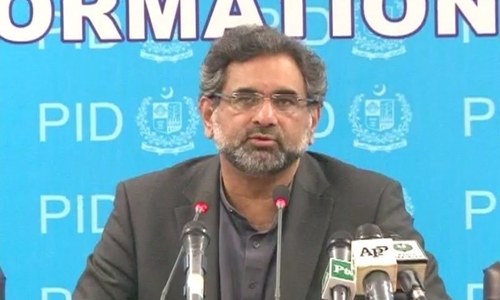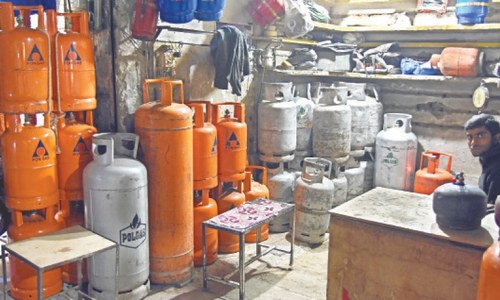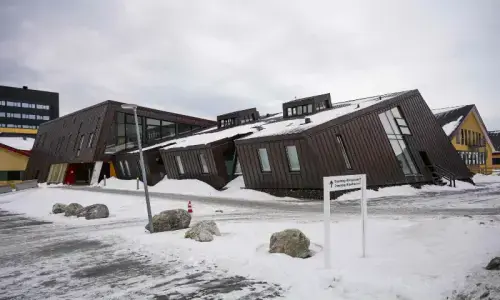ISLAMABAD: Substantial quantities of natural gas continue to flow into cement, fertiliser and power plants, even as residential consumers have to brave severe gas shortages, particularly in Punjab and Khyber Pakhtunkhwa, during the harsh winter months.
About 440 million cubic feet per day (mmcfd) of gas is being provided to these three sectors, which are lower down the priority order than domestic consumers, a senior official of the petroleum ministry told Dawn.
This includes 210mmcfd from the Sui Northern Gas Pipelines Limited (SNGPL) and 231mmcfd from Sui Southern Gas Company Limited (SSGCL). A major part of this 440mmcfd used to be diverted to domestic consumers every year in winter to minimise their suffering. “Fertiliser plants, despite being second on the priority list, have gas supply contracts for nine months,” the official said. These plants are usually shut down for annual maintenance over three months in the winter.
Another 300mmcfd could be added through increased LNG imports, which is currently flowing at the rate of just 130mmcfd, despite a higher installed capacity.
Because of a historic decline in international oil prices, the cost of re-gasified LNG (RLNG), after taxes and charges, has come down to about $5.5 per MMBTU, which is well below the price of gas from certain domestic gas fields, except Sui. RLNG prices will be affordable for the domestic sector at this rate if included in the weighted average cost of gas (WACOG) at least for three months.
All this is happening at a time when the gas requirement in the residential sector in Punjab alone – where the mercury is plummeting close to freezing point – has exceeded 1,000mmcfd, as opposed to the supply, which is between 600 and 650mmcfd.
Under the government’s gas load management policy, residential consumers should get priority in gas supply, followed by fertiliser plants, power plants with permanent supply agreements, general industry and CNG, power plants with seasonal contracts and then cement plants at the lowest ladder of priority.
As of Jan 22, 2015, about 43mmcfd gas was being provided to Pak-Arab Fertiliser and 12mmcfd to cement plants (including two plants of D.G. Khan Cement, Gharibwal Cement, Kohat Cement and Lucky Cement).
Guddu Power plant is getting 85mmcfd, Jamshoro Power 78mmcfd, Kotri Power 24mmcfd, Bin Qasim Plant 100mmcfd, K-Electric Power 30mmcfd and Rousch Power 70mmcfd. However, an official said Rousch’s gas supply agreement had already ended.
In the past, all this gas (except for the 130mmcfd supplied to KE and Bin Qasim plants) used to be diverted to Punjab and KP in the three winter months, i.e. November, December and January, the officials said. After accounting for KE, Bin Qasim and other provincial and contractual commitments under the 18th Amendment, around 300mmcfd gas could be shifted to the north from power, fertiliser and cement plants, they said.
“The prime minister needs to take notice of the situation and call a meeting of all agencies concerned, such as the petroleum ministry, the two gas utilities and the Oil and Gas Regulatory Authority (Ogra) as soon as possible to address the sufferings of the common man,” a former Ogra chairman said.
He said that all these agencies seemed to be pre-occupied with LNG import and its long-term supply contracts, while the people continued to suffer. He said the number of accidents was increasing alarmingly this year as consumers had switched over to liquid petroleum gas (LPG) for cooking and heating purposes.
This new lot of consumers, he said, was not used to LPG and due to increased demand LPG cylinders were being illegally filled in local markets, instead of cylinders marketed by LPG marketing companies.
“This is a total mismanagement of the gas supplies,” he said.
Published in Dawn, January 25th, 2016


































